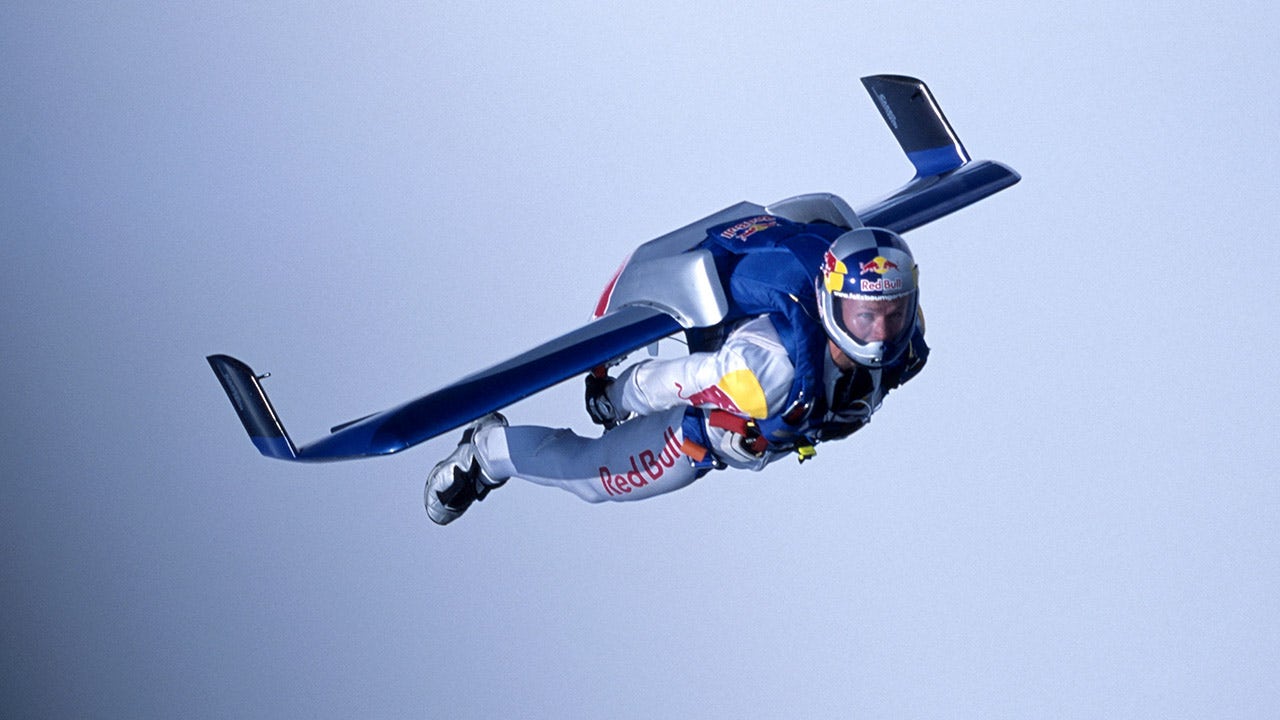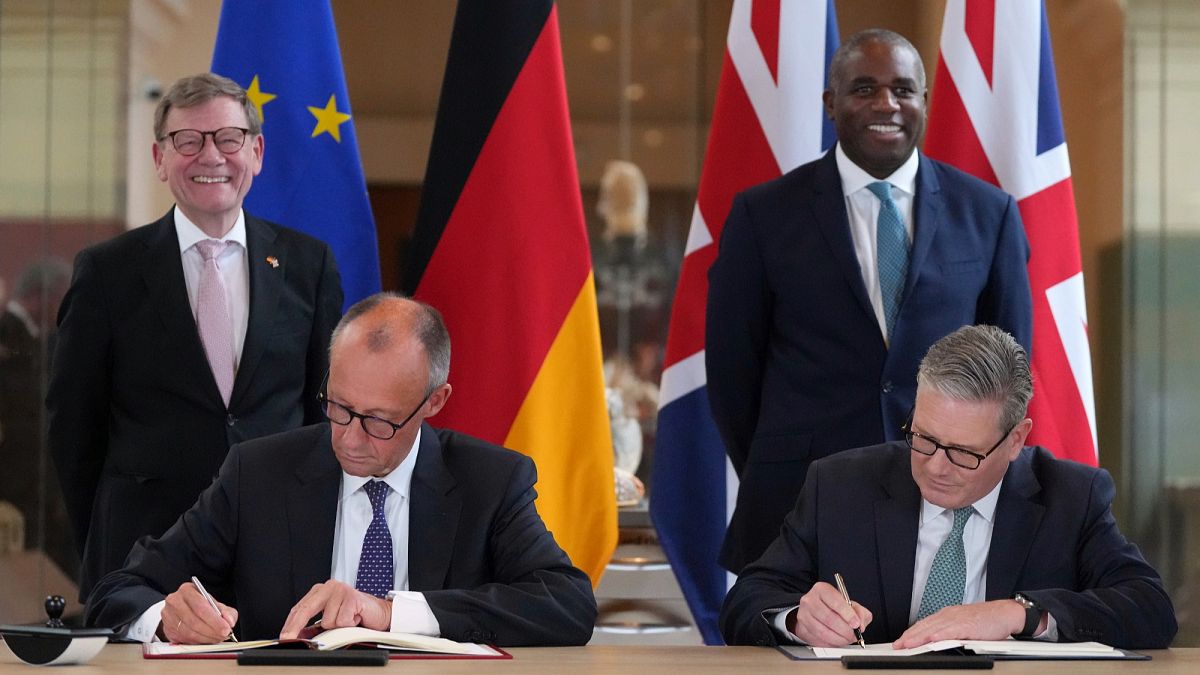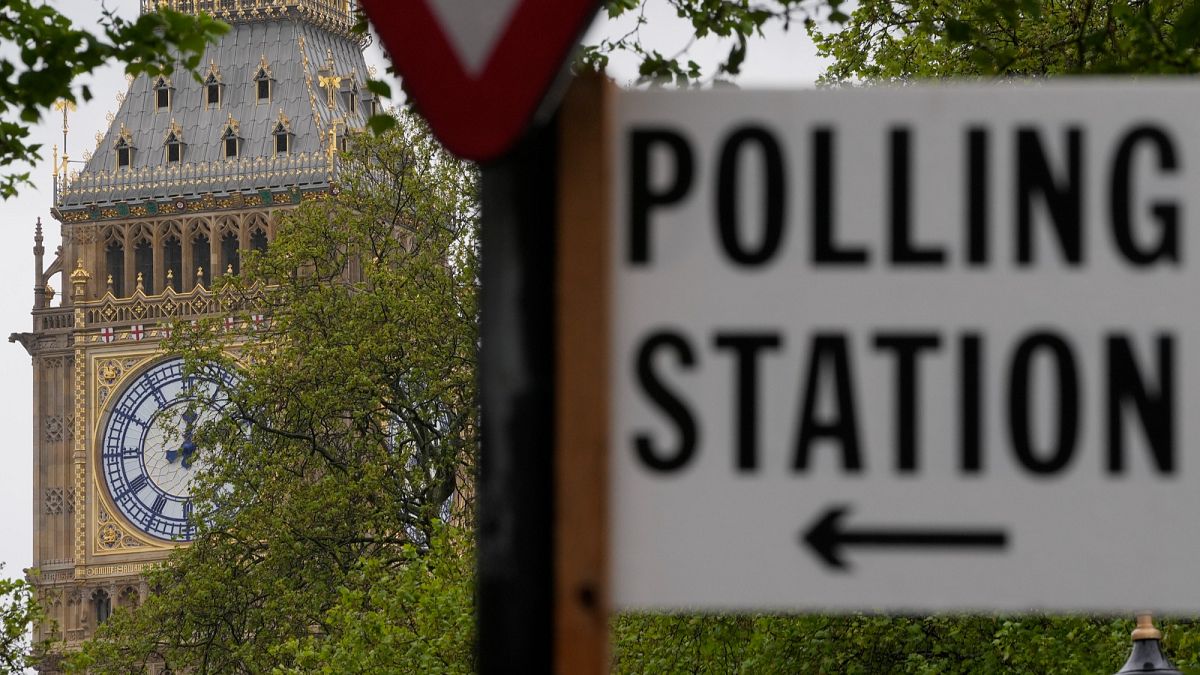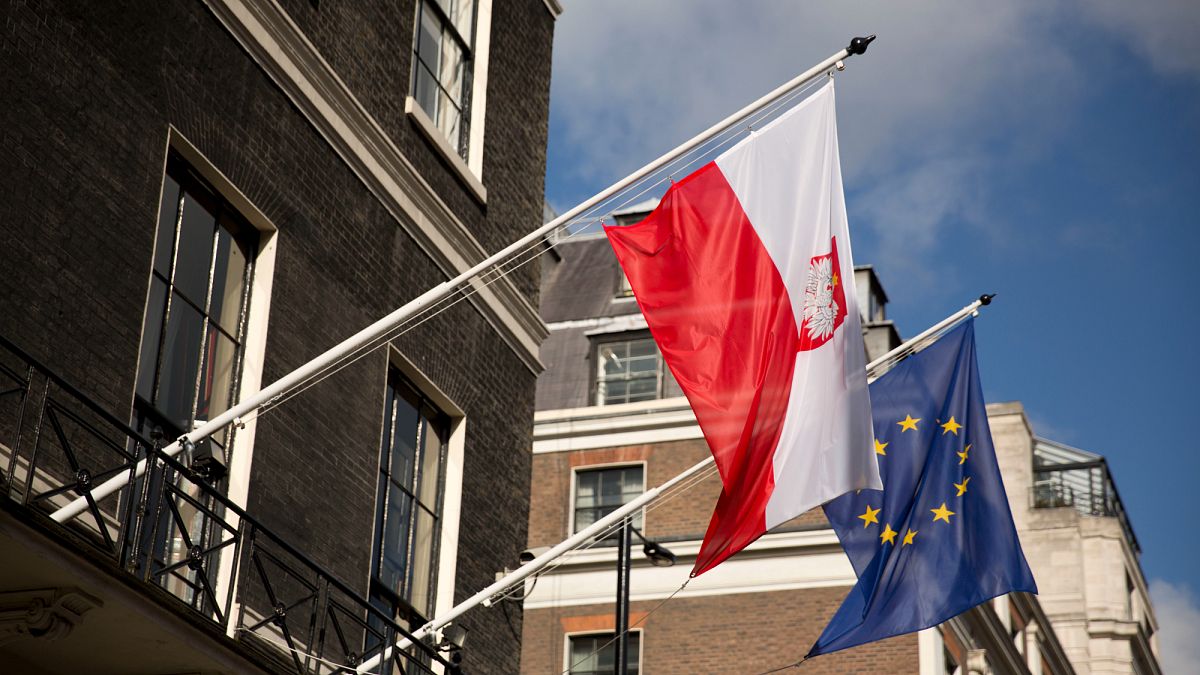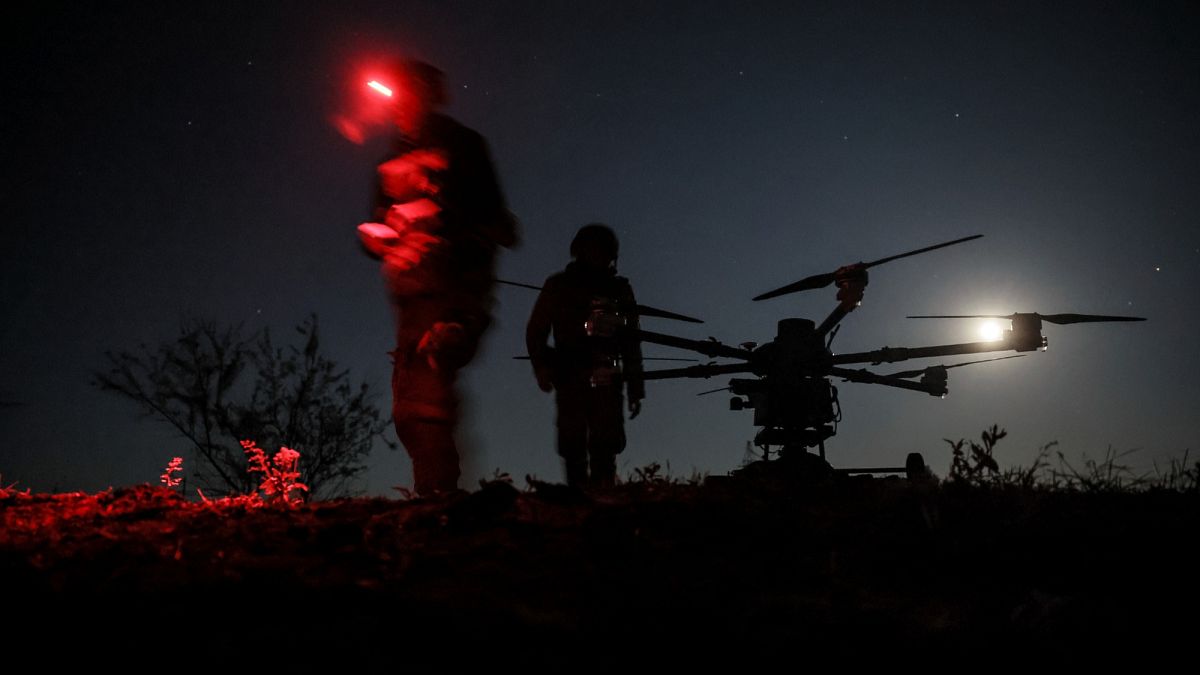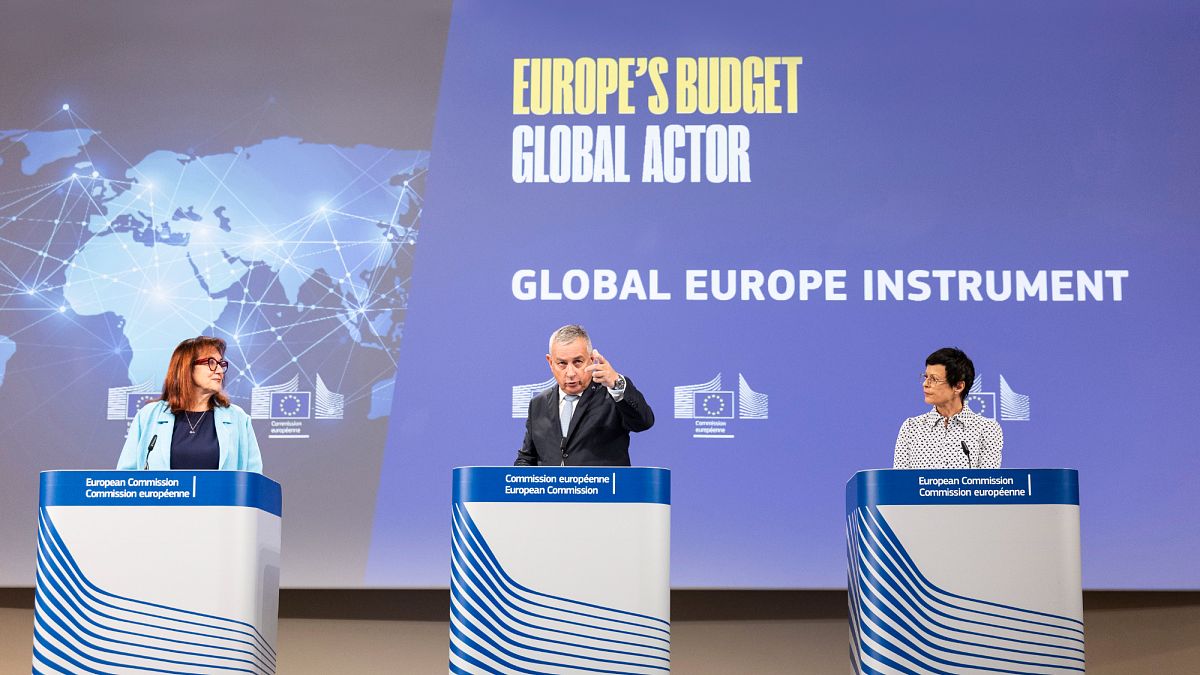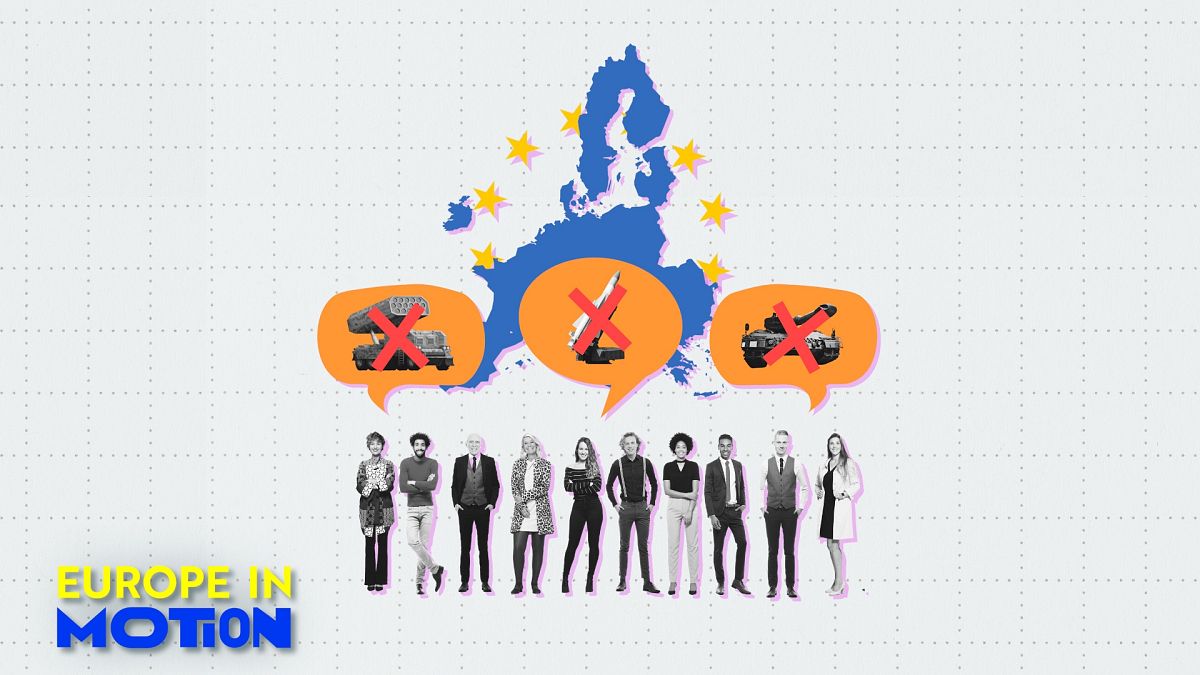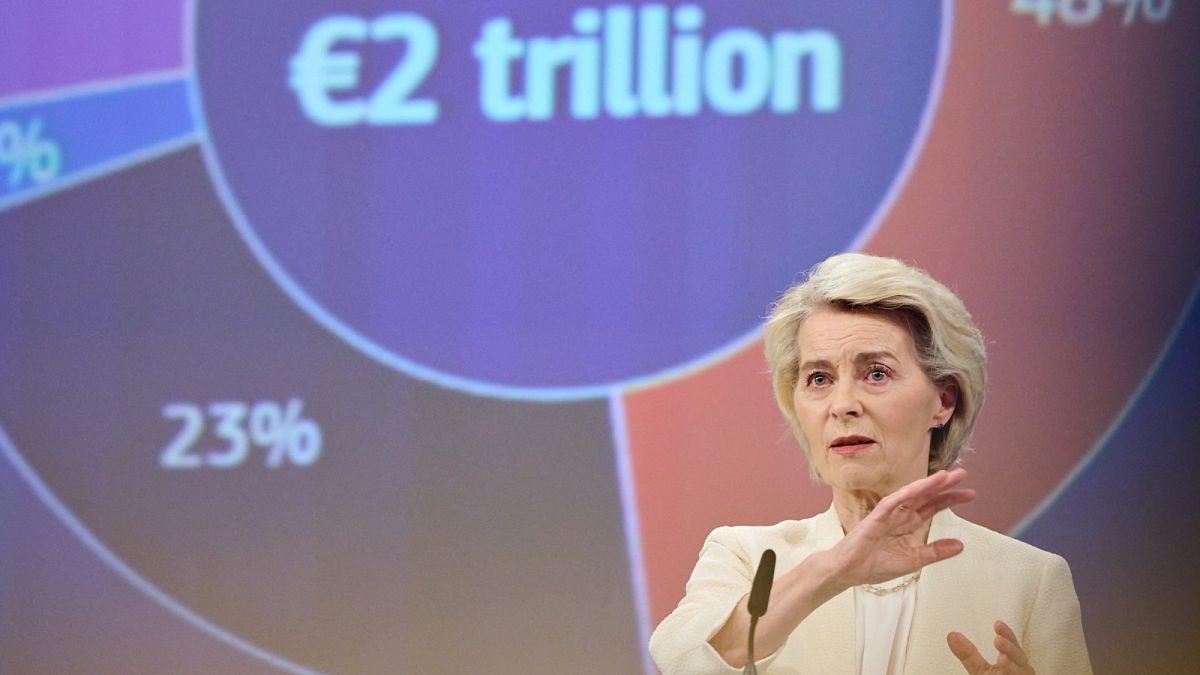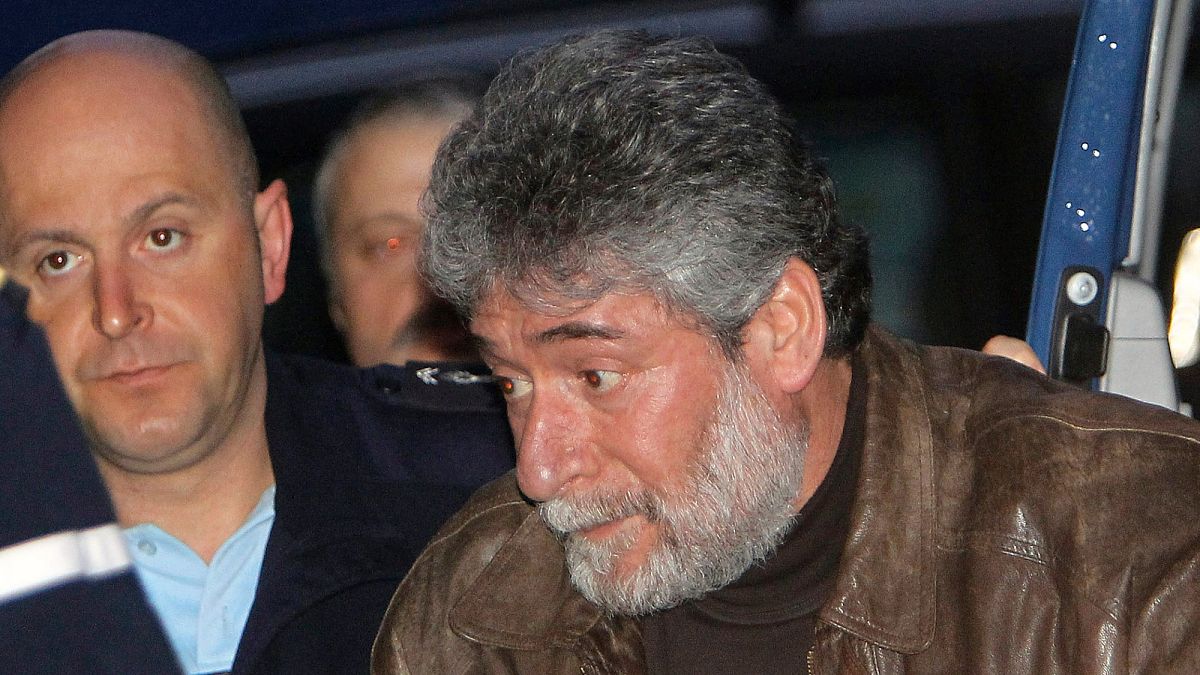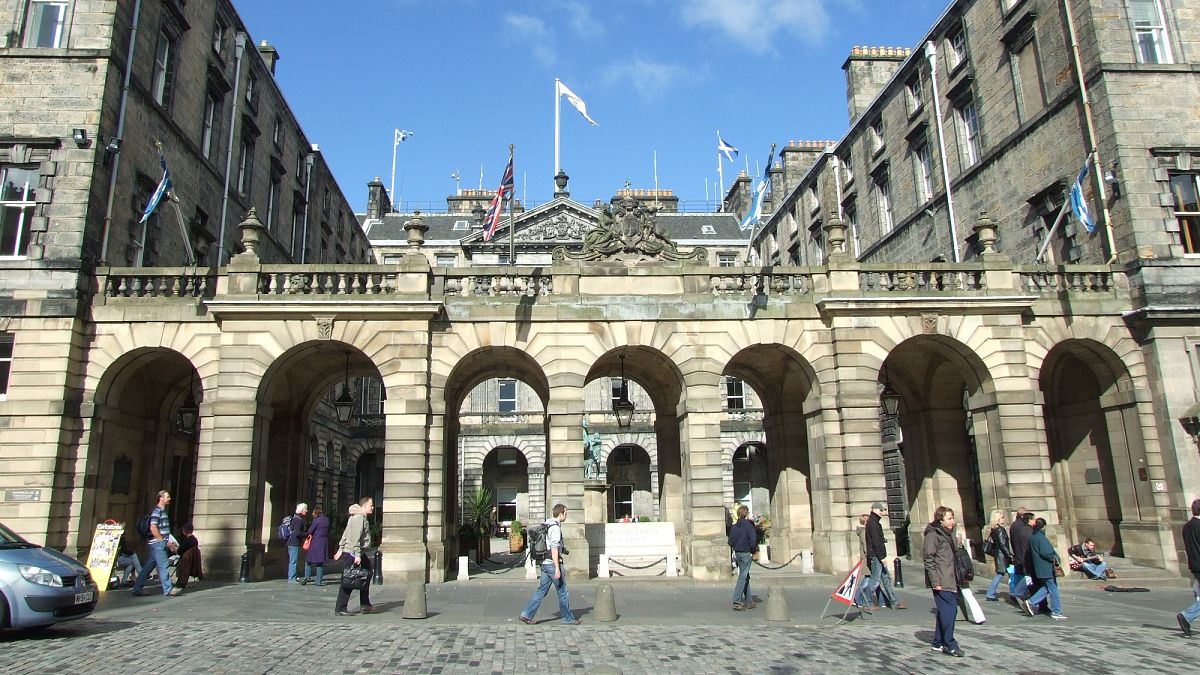ADVERTISEMENT
UK Prime Minister Keir Starmer and German Chancellor Friedrich Merz signed a “first of its kind” defence and migration treaty between the two countries, formalising the commitment that each country will come to the other’s aid in the event of an attack.
“This is a historic day for German-British relations,” said Merz, making his first official visit to the UK since taking office in May.
“We want to work together more closely, particularly after the United Kingdom’s withdrawal from the European Union. It is overdue for us to conclude such a treaty with each other.”
Starmer described the treaty as “the first of its kind ever” and called it a “statement of intent, a statement of our ambition to work ever more closely together.”
The pact also targets smuggling gangs and includes a commitment from Berlin to make facilitating the smuggling of migrants to the UK a criminal offence.
“Chancellor Merz’s commitment to make necessary changes to German law to disrupt the supply lines of the dangerous vessels which carry illegal migrants across the Channel is hugely welcome,” Starmer said.
A statement from Downing Street said the legal change — expected to pass by the end of the year — would give German authorities greater powers to investigate and take action against warehouses and storage facilities used by smugglers to hide small boats intended for Channel crossings.
The treaty builds on a defence pact the UK and Germany, two of the biggest European supporters of Ukraine, signed last year, pledging closer co-operation against a growing threat from Russia.
Starmer builds further bridges with Europe
Starmer has worked to improve strained relations with the UK’s European neighbours after its departure from the EU in 2020.
While he has ruled out re-joining the 27-member bloc’s single market, he has sought to increase defence cooperation and reduce trade barriers through new arrangements.
During a working lunch at 10 Downing Street, the two leaders also discussed ways to boost European support for Ukraine, including the announcement that German defence startup Stark, which makes drones for Ukraine, will open a factory in the UK.
A document released by the German government states that the countries are committed to greater cooperation on joint military and training exercises, as well as working together to combat cyber threats and information warfare.
The leaders also unveiled a joint export campaign to co-produce equipment such as Boxer armoured vehicles and Typhoon jets, and to develop a deep precision strike missile over the next decade.
Other parts of the treaty aim to deepen economic cooperation by promoting employment and the creation of high-quality jobs, plans for a new cross-border rail link and visa-free travel measures for certain groups.
Of the limited arrangement that will make it easier for schoolchildren to go on exchange trips, Merz said he was glad the agreement would allow “the young generation in particular has an opportunity to get to know both countries better.”
At the signing of the agreement, Merz said he was “surprised” to learn the deal was the first UK-Germany treaty of its kind since World War II.
“We had you in the European Union and we thought that was enough, but we are now learning that it’s not enough so we have to do more on that,” he said.
Additional sources • AP


